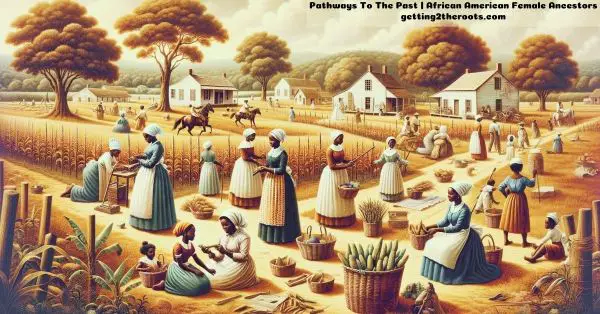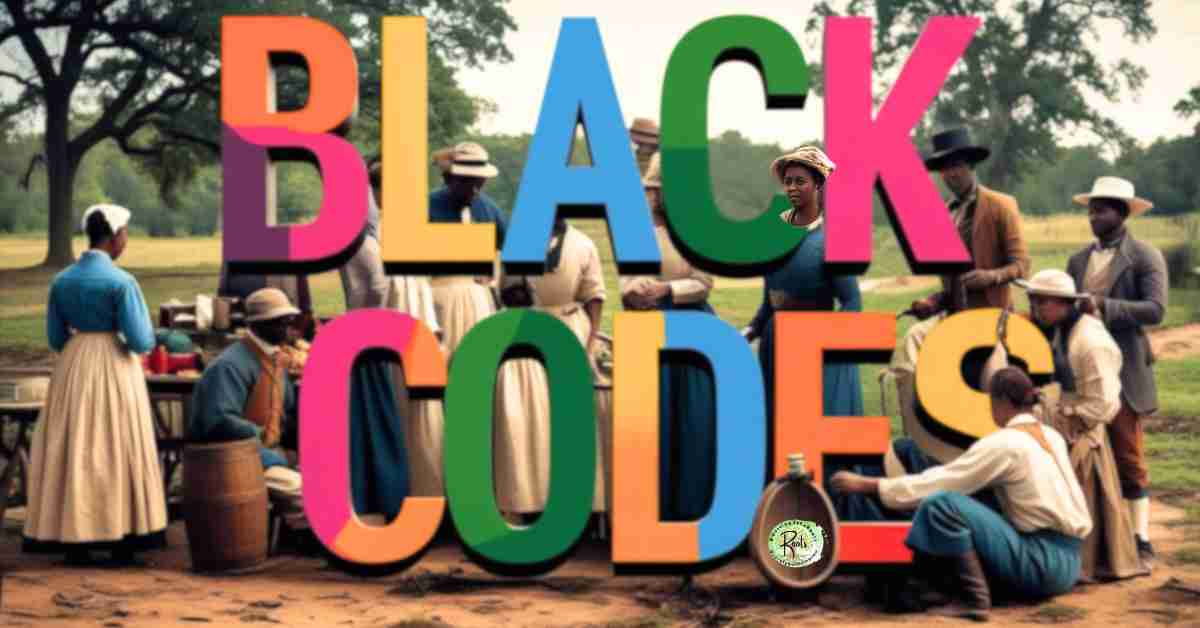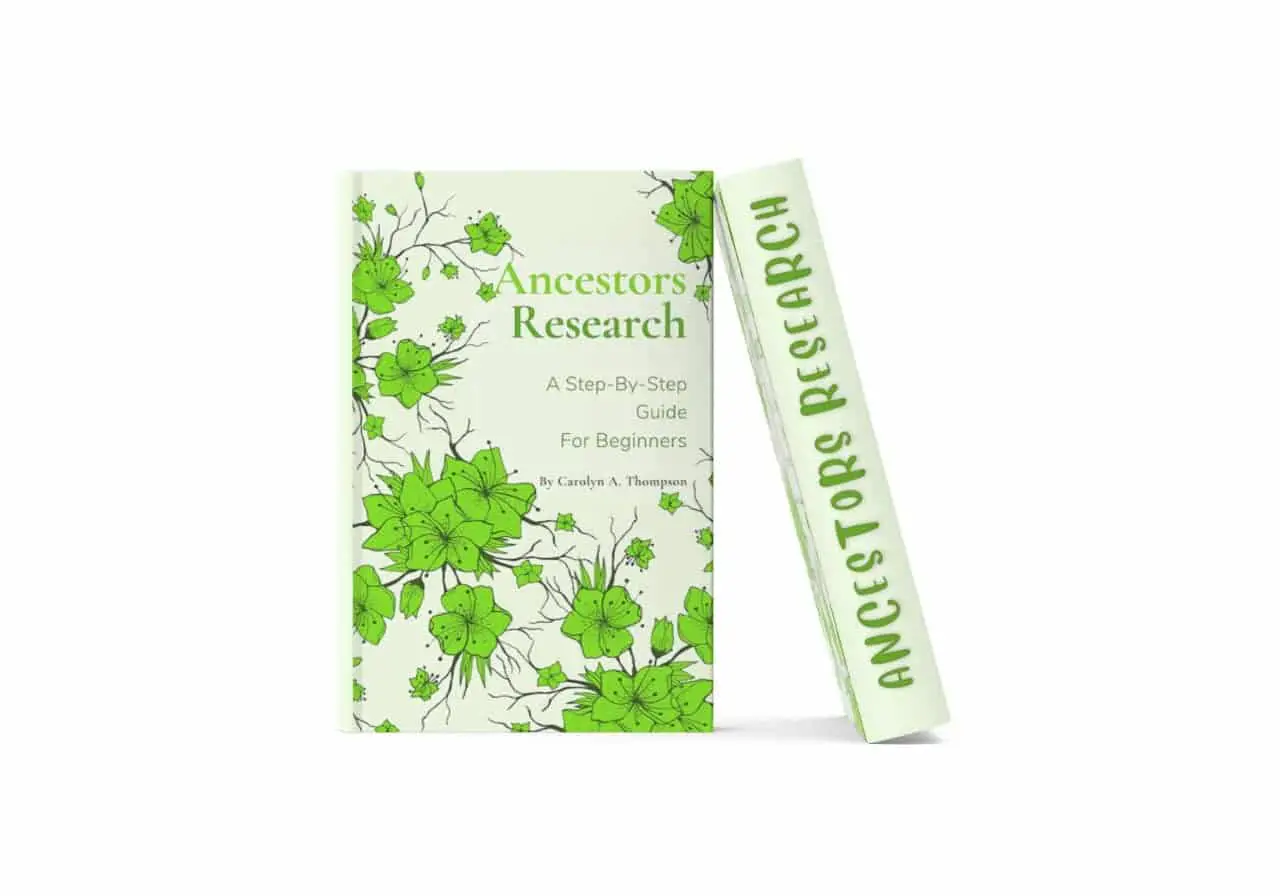Exploring the Pathways to the Past of African American Female Ancestors is a journey into personal identity and familial roots, a quest deeply resonant for many African American women.
This exploration unravels an intricate tapestry of ancestry, delving into a rich and tumultuous history that has profoundly influenced and shaped our lineage.
As we embark on this compelling venture, we uncover stories of resilience, courage, and the enduring spirit of African American female ancestors.
Through a deep exploration of pivotal historical periods like:
- Transatlantic Slave Trade.
- Reconstruction Era.
- Great Migration.
- Civil Rights Movement.
One can gain a profound understanding of the complex circumstances that envelope the tracing of lineage.
Tracing the Pathways to the Past of African American Female Ancestors requires an understanding of diverse genealogical resources and methodologies.
For those interested in delving deeper, especially in the realm of genetic genealogy, I highly recommend reading “Identifying the Most Informative DNA Tests for African Americans.”
This article provides valuable guidance on selecting DNA tests that are particularly informative for African Americans.
It helps bridge the gap between genetic data and historical records, enabling a more comprehensive understanding of our lineage.
However, comprehending this quest and the tools essential for uncovering history comes with its own set of uniquely embedded challenges.
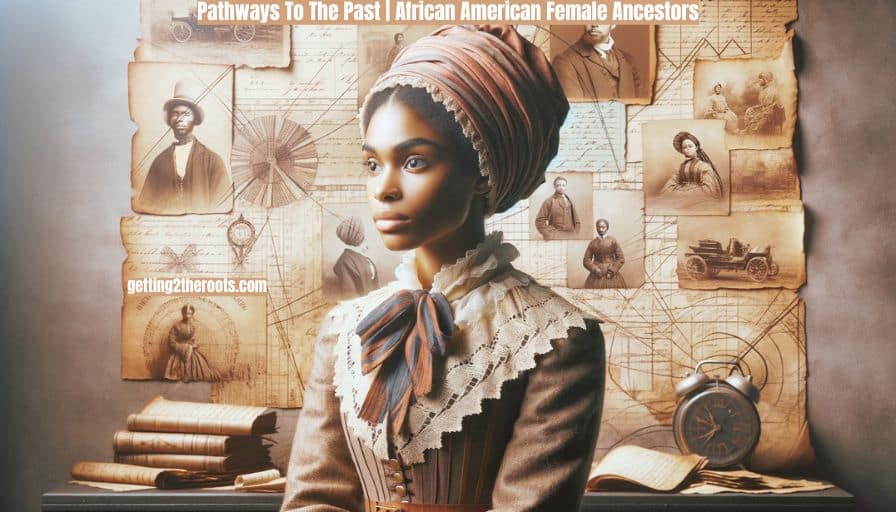
Historical Context of African American Female Ancestors
The Transatlantic Slave Trade’s Impact on African American Female Ancestors
The pursuit of understanding the past of African American Female Ancestors inevitably leads to the grim history of the Transatlantic Slave Trade.
Spanning from before the 15th century to the mid-19th century, this trade involved the mass forced migration of millions of Africans to America. African American female ancestors, caught in this devastating trade, faced unimaginable hardships.
During this period, captors forcibly took African women from their land, subjecting them to perilous journeys across the Atlantic. The inhumane conditions on the slave ships included severe overcrowding, rampant disease, and relentless abuse.
This era subjected African American Female Ancestors to extreme brutality; they endured both physical and sexual abuse, and oppressors completely stripped them of their basic human rights.
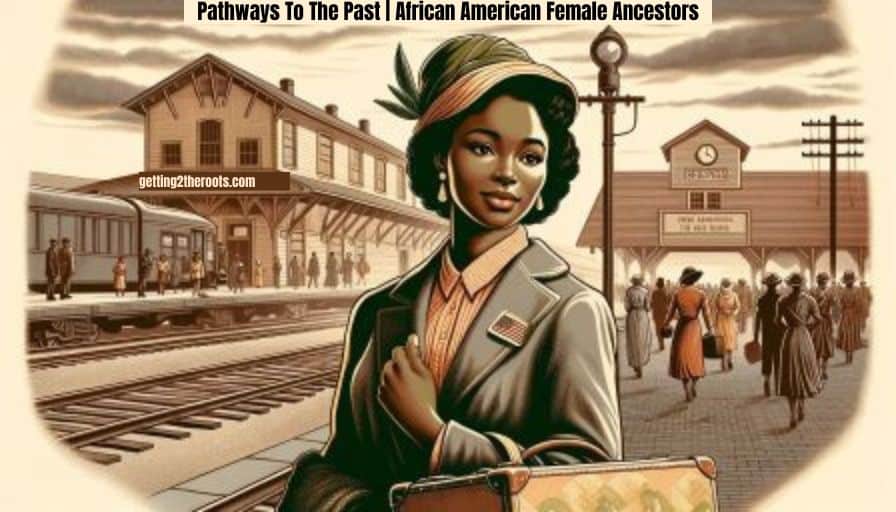
Resilience and Survival: African American Female Ancestors During Slavery
Upon their arrival in the Americas, traders sold these women into slavery, often separating them from their families.
Their roles varied from field labor to domestic work, enduring long hours, harsh treatment, and little to no autonomy.
The slave trade disrupted the cultural identity of these women, forcing them to adapt to a new environment while they clung to fragments of their ancestral heritage.
Furthermore, the impact on family structures was profound. Many African American female ancestors bore children born into slavery with little hope of keeping their families intact.
The trauma of this era left a lasting impact on the lineage and genealogy of African American families, a legacy that is still being unraveled and understood today.
Understanding the full scope of the Transatlantic Slave Trade’s impact on African American female ancestors is not just an academic endeavor.
It is a journey into a painful past, acknowledging the resilience and strength these women exhibited in the face of unimaginable challenges, and recognizing their vital role in the tapestry of American history.
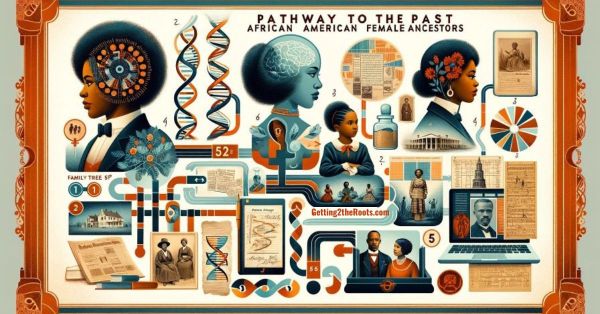
The Reconstruction Era: A New Chapter for African American Female Ancestors
The Reconstruction Era, spanning from 1865 to 1877, marked a significant turning point in the lives of African American Female Ancestors.
This period, following the end of the Civil War, was a time of profound societal, economic, and political changes.
African American women found themselves navigating a landscape filled with both opportunities and challenges as they transitioned from slavery to freedom.
During Reconstruction, African American female ancestors played crucial roles in rebuilding their families and communities.
They actively participated in the fight for civil rights, including the right to education and the establishment of schools.
Many of these women tirelessly worked to reunite with family members separated during slavery, forging new family bonds and structures.
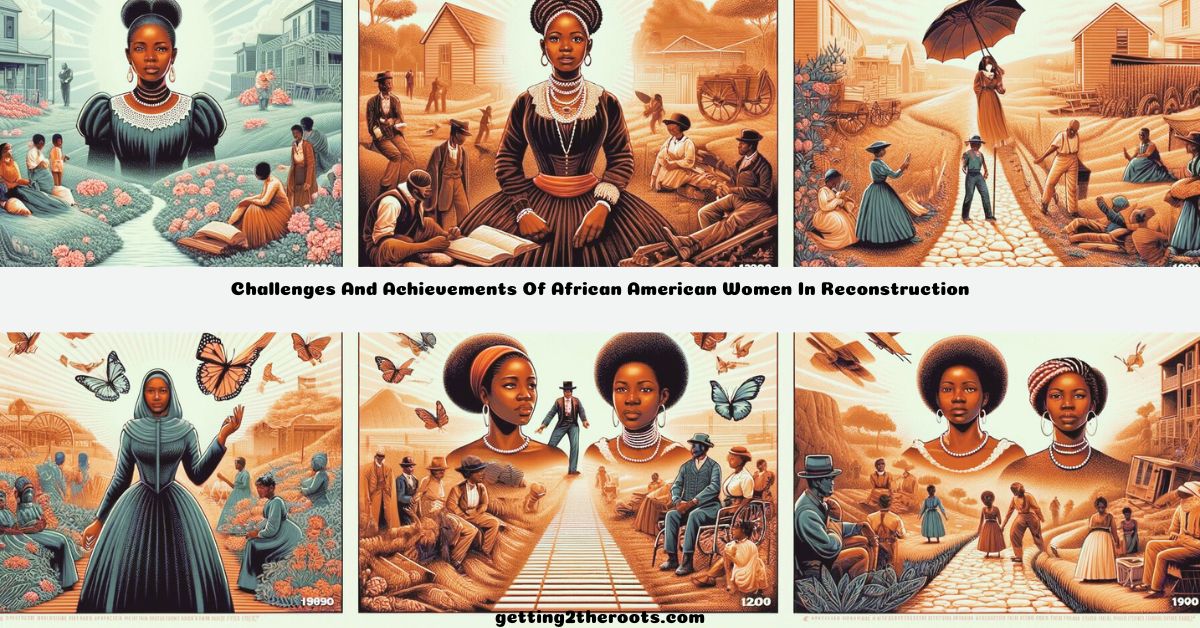
Challenges and Achievements of African American Women in Reconstruction
However, the Reconstruction Era was also fraught with challenges for African American female ancestors. Despite the promise of freedom, they often faced racial violence and discrimination.
The Black Codes, laws that restricted the rights and movements of freed slaves, disproportionately affected women, limiting their employment opportunities and reinforcing gender roles.
Despite these obstacles, African American women of this era laid the foundation for future generations.
They were instrumental in preserving African American culture and history through storytelling and other traditions.
Their determination during the Reconstruction Era helped shape the future of African American communities and set the stage for the ongoing struggle for equality and justice.
The Impact of Black Codes on African American Women During Reconstruction
The Black Codes, while broadly targeting African American freedoms, had specific implications for African American women. These laws:
- Forced Labor Roles: Often relegated African American women to limited roles, typically as domestic workers or agricultural laborers, restricting their ability to seek diverse employment opportunities.
- Economic Dependency: Ensured economic dependency by preventing African American women from owning land or engaging in contracts independently, effectively maintaining their status as dependent laborers.
- Limited Legal Rights: This restricted their legal rights, including rights related to marriage, property, and guardianship of their children, further entrenching their subordinate status in society.
- Restrictions on Movement: Limited their freedom of movement, which was particularly impactful for women seeking to reunite with family members from whom they had been separated during slavery.
- Vulnerability to Exploitation: It made African American women especially vulnerable to exploitation and abuse, with limited legal recourse due to the racially biased legal system.
- Impact on Family Structure: This affected family dynamics and stability, as these codes often undermined the ability of African American women to protect and provide for their families.
Overall, the Black Codes made it much harder for African American women ancestors to be independent and make progress in society and the economy. They also left behind a long history of racial and gender-based inequality.
These laws effectively curtailed our economic empowerment and personal liberties, reinforcing societal obstacles against our advancement.
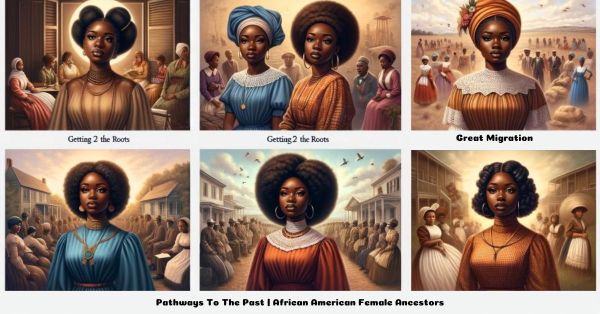
The Great Migration: A Transformative Era for African American Female Ancestors
The Great Migration, a mass movement of African Americans from the rural South to the urban North that spanned from 1916 to 1970, marked a significant chapter in the history of African American Female Ancestors.
The desire for better economic opportunities and to leave the oppressive Jim Crow South were the driving forces behind this epochal movement.
During this period, African American women played pivotal roles in reshaping their communities and families.
They not only sought better employment opportunities but also aimed to improve the quality of life for themselves and their families.
Their migration to cities like Chicago, New York, and Detroit led to a profound cultural and demographic shift in the United States.
Enduring Challenges and Cultural Renaissance
Despite the promise of a better life, African American female ancestors faced enduring challenges during the Great Migration.
They confronted racial discrimination, economic hardships, and the complexities of urban life. However, these challenges did not hinder their determination to build a better future.
This era also witnessed a cultural renaissance, with African American women playing a central role.
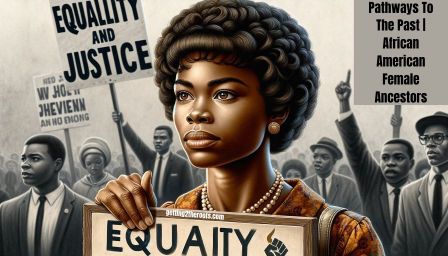
Beyond their significant contributions to the Harlem Renaissance in the realms of art, music, and literature, these women were instrumental in pioneering advancements in various fields.
In education, African American female educators and scholars emerged as powerful advocates for racial equality and educational reform, striving to provide quality education to African American children despite systemic barriers.
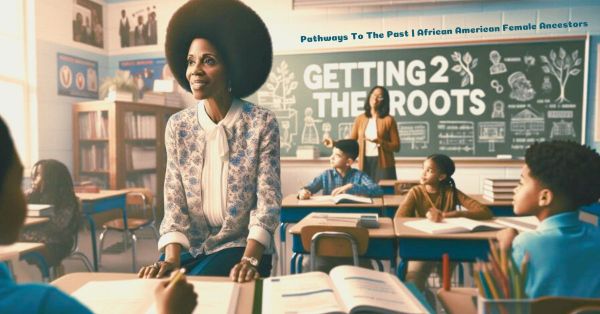
In the medical field, African American women nurses and doctors broke racial and gender barriers.
By providing essential healthcare services to their communities at a time when African Americans faced severe limitations in accessing medical care.
Their efforts not only improved public health but also paved the way for future generations of African American healthcare professionals.
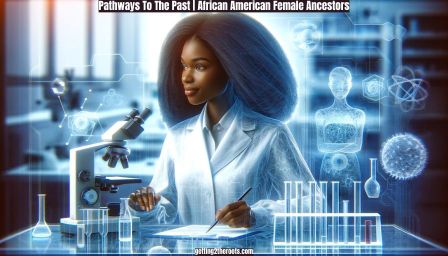
Moreover, African American women made notable strides in the business sector, establishing and running businesses that ranged from small community-centric enterprises to significant ventures.
Their entrepreneurial spirit was a driving force in sustaining and uplifting African American communities during this transformative era.

In the realm of science, African American female ancestors were pioneers, contributing to scientific research and innovation despite facing considerable challenges.
Their work in fields such as biology, physics, and engineering broke new ground and challenged the prevailing stereotypes of their time.
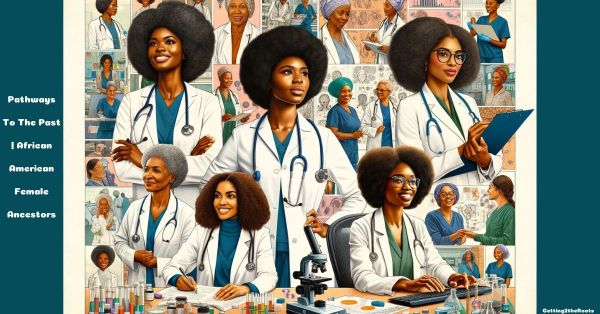
Their stories, songs, and varied experiences added rich layers to the tapestry of American culture, celebrating the resilience, creativity, and multifaceted achievements of the African American community.
The contributions of these women during the Harlem Renaissance extended well beyond the arts, leaving a lasting impact across multiple disciplines and forever changing the course of American history.
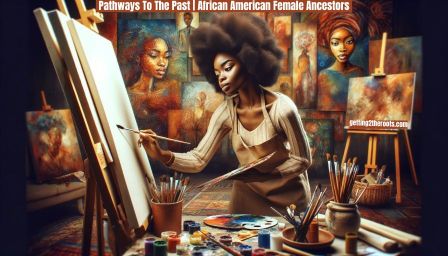
African American Female Ancestors in the Civil Rights Movement
The Civil Rights Movement, a pivotal period in the mid-20th century, saw African American Female Ancestors stepping forward as key agents of social and political change.
Their involvement was not just a response to the long-standing racial injustices but also a powerful assertion of their rights and dignity.
These women organized, protested, and led civil rights actions, challenging the systemic racism and sexism that had long suppressed their voices.
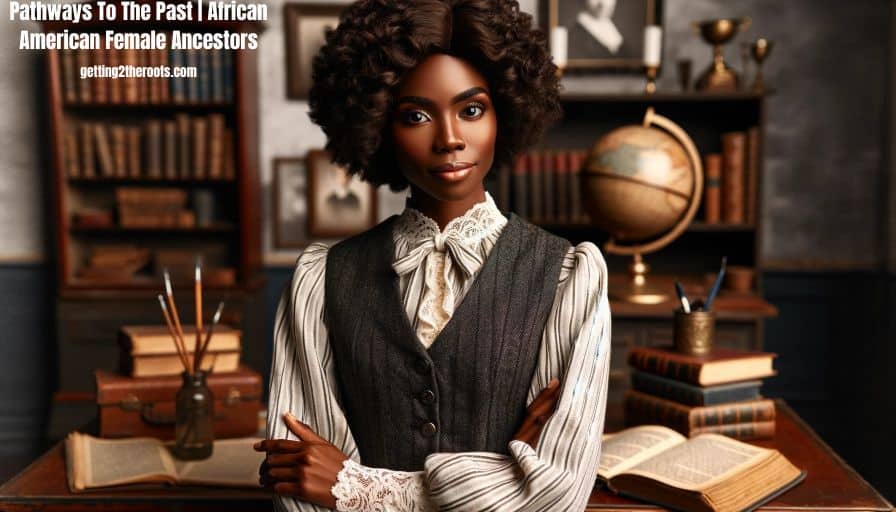
Leadership and Legacy in the Fight for Equality
African American women emerged as leaders, strategists, and symbols of strength during the Civil Rights Movement.
They spearheaded boycotts, participated in sit-ins, and were instrumental in voter registration drives. These efforts were critical to dismantling segregation laws and advocating for the Voting Rights Act.
Their contributions went beyond public demonstrations; they were the backbone of the movement, providing intellectual leadership and nurturing community solidarity.
The involvement of African American female ancestors in the Civil Rights Movement reshaped the American social landscape, leaving a legacy of courage and resilience that continues to inspire future generations.
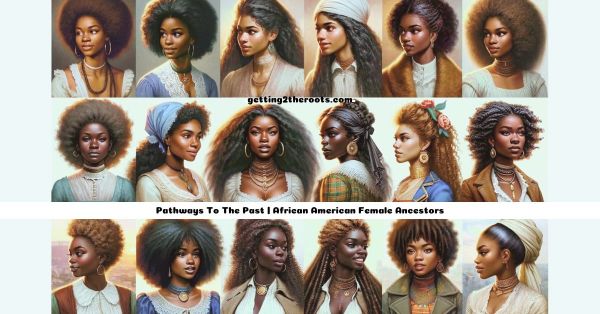
Genealogical Tools for African American Female Ancestors
Advancements in research methodologies have significantly improved our ability to trace African American Female Ancestors.
Researchers utilize a blend of historical documents and modern genetic tools to uncover their past.
Exploring Census Records: A Gateway to Tracing African American Female Ancestry
Federal and state documents, particularly federal censuses since 1790, are invaluable in this quest.
These records provide crucial insights, especially post-1865, when many African American women first appeared in official records. Attention to detail is key, as variations in names and ages are common.
Discover key insights into census records with “What’s In The Census | 1790 To 1950” an essential read for tracing African American female ancestry. The article provides a concise overview of the information contained in census reports.
Unearthing African American Female Ancestors in Freedmen’s Bureau Records
The Freedmen’s Bureau Records, established to assist newly freed African Americans in the post-Civil War era, provide an invaluable resource for understanding the lives of African American female ancestors.
Beyond labor contracts and school records, these documents also contain a wealth of personal information.
Marriage certificates within these records are particularly insightful, offering a window into the family structures and social dynamics of the time.
These certificates not only document marital unions but also often provide details about previous enslavement, kinship ties, and sometimes even personal narratives.
This level of detail can be instrumental in constructing a more complete and nuanced picture of the lives of African American women during a transformative period in American history.
Dive into the rich history of African American female ancestors with the enlightening article, “The Value of Freedman’s Bank Records for Genealogy.”
This piece sheds light on the crucial role of the Freedmen’s Bureau Records in uncovering the lives and experiences of African American women post-emancipation.
Military and Legal Records in Tracing African American Female Ancestors
Pension files of U.S. Colored Troops and legal documents like wills offer further insights into the lives of African American Female Ancestors.
These sources can provide critical information about soldiers’ wives and families.
Slave Era Research for African American Female Ancestors
Tracing African American Female Ancestors during the slavery era involved navigating slave schedules and plantation records.
Although challenging due to the lack of named records, meticulous cross-referencing can reveal significant insights.
DNA Testing in Genealogy of African American Female Ancestors
DNA testing, especially mitochondrial DNA (mtDNA) analysis, plays an invaluable role in tracing the maternal lines of African American Female Ancestors.
This type of testing is crucial for bridging the gap between genetic matches and historical records, enabling a deeper understanding of maternal lineage.
Several reputable companies offer mtDNA testing services, each with its own unique approach:
- FamilyTreeDNA: Known for its dedicated mtDNA test, FamilyTreeDNA specializes in detailed maternal lineage tracing. Their mtDNA test can reveal deep ancestral roots and connect individuals with maternal relatives.
- AncestryDNA: While primarily focused on autosomal DNA testing, AncestryDNA provides insights into maternal ancestry through its comprehensive ancestry test. This service is useful for those who also wish to explore broader family connections beyond mtDNA.
- Living DNA: Offering an autosomal DNA test that includes mtDNA analysis, Living DNA provides a breakdown of ancestry and traces maternal lines. Their service is well-suited for those looking for a combination of maternal lineage and general ancestry information.
- MyHeritage DNA: MyHeritage DNA offers an ancestry test that covers aspects of maternal lineage. While not a dedicated mtDNA test, it can provide useful insights into maternal ancestral roots as part of a broader genealogical search.
Utilizing these services, researchers and individuals can uncover connections to maternal ancestors, often revealing stories and links that traditional records alone cannot provide.
The integration of mtDNA testing into genealogical research enriches the narrative of African American Female Ancestors, shedding light on maternal lineages that have shaped personal and community histories.
Newspapers And Periodicals In Tracing African American Female Ancestors
Historical newspapers and community periodicals are treasure troves of information. For instance, the Chronicling America database is an excellent resource for researching African American Female Ancestors.
Oral Histories: Connecting to African American Female Ancestors
Oral histories and community periodicals, like those used in reconstructing the lineage of figures like Ida B. Wells, provide valuable insights.
However, their subjective nature and the systemic racism prevalent in historical newspapers must be carefully considered.
Ethical Considerations in Tracing African American Female Ancestors
In this sensitive endeavor, upholding ethical integrity and respecting the memory of African American Female Ancestors is paramount. Researchers must navigate this journey with care and honor.
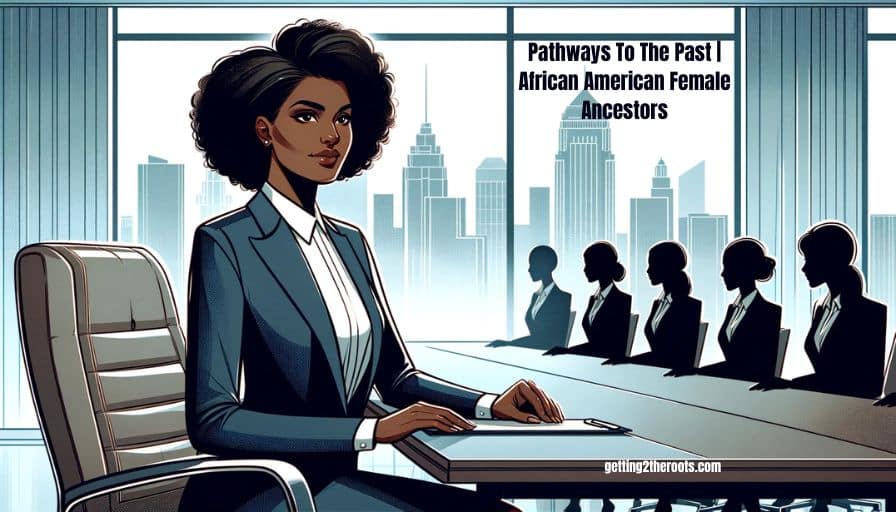
Challenges in Tracing African American Female Ancestry
Complexities in Tracing African American Female Ancestors
Tracing the genealogy of African American Female Ancestors often reveals distinct challenges rooted in historical events, societal structures, and logistical hurdles.
This endeavor transcends academic exercise, bearing immense personal and national significance.
The lack of standard documentation and the brutal realities of their historical circumstances further complicate this task.
Impact of Name Changes Due to Marriage
A significant obstacle to tracing African American Female Ancestors arises when women change their last names after marriage.
This common practice can create a discontinuity in the genealogical record, making it difficult to trace lineage through successive generations.
Researchers must then rely on marriage records, which can link a woman’s maiden name to her married name, to maintain continuity in the family tree.
Challenges with Public Records and Inconsistencies
Starting with public records such as federal censuses, researchers gather valuable information about African American Female Ancestors.
However, these records often present challenges, including inconsistencies in names, ages, and birthplaces, complicating the tracing process.
Post-Emancipation Records and Bureaucratic Variability
In the post-Emancipation era, records like those from the Freedmen’s Bureau became crucial. Yet, the completeness of these records often varies due to bureaucratic discrepancies and societal biases at the time of record-keeping.
Genealogical Research Before Emancipation
Before Emancipation, tracing the genealogy of African American Female Ancestors became even more challenging.
Records like slave schedules and plantation logs, which often listed enslaved individuals as property, frequently lacked personal names, reducing these women to mere numbers.
Mitochondrial DNA Testing and Genetic Challenges
DNA testing, especially mitochondrial DNA (mtDNA) analysis, plays an invaluable role in tracing the maternal lines of African American Female Ancestors.
This type of testing is crucial for bridging the gap between genetic matches and historical records, enabling a deeper understanding of maternal lineage.
The integration of mtDNA testing into genealogical research enriches the narrative of African American Female Ancestors, shedding light on maternal lineages that have shaped personal and community histories.
However, this method also faces challenges, such as the absence of a centralized DNA database for African American women.
Utilizing Oral Histories and Local Publications
Oral histories and local publications can provide intimate insights into the lives of African American Female Ancestors.
While invaluable, these sources require careful corroboration due to their subjective nature.
Ethical Considerations in Tracing Ancestry
Given the profound importance of tracing the genealogy of African American Female Ancestors, researchers must approach this task with sensitivity and ethical integrity.
This journey, while filled with complexities, is crucial for understanding the role of African American women in shaping the nation’s history and its impact on today’s society.
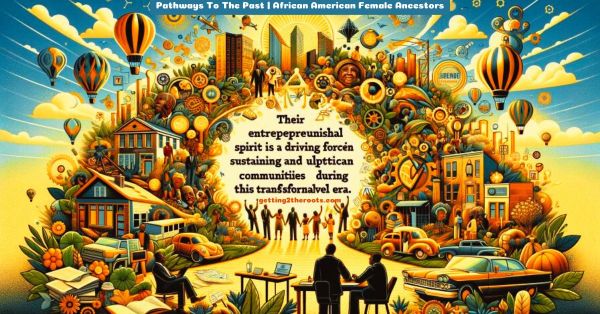
Case Studies in Tracing African American Female Ancestors
Tracing the genealogy of African American Women presents unique challenges stemming from tragic historical forces and the dehumanizing institution of slavery.
The scarcity of formal documents typical of genealogical research exacerbates the difficulty of this task.
Challenges with Traditional Genealogical Sources
Traditional sources, like birth certificates and marriage records, often provide limited help for descendants tracing African American Female Ancestors, especially those from the slavery era.
The patriarchal emphasis on male lineage and the lack of legal recognition for many enslaved people’s marriages and families resulted in scant records.
Real Case Studies: From Slavery to Freedom
Case studies, like the journey of tracing Harriet Jacobs’ lineage, illustrate these challenges.
Despite her well-documented autobiography, “Incidents in the Life of a Slave Girl,” tracing her family required sifting through property records and personal narratives.
Similarly, the search for Sojourner Truth’s descendants involved analyzing Freedmen’s Bureau records, highlighting their variable depth and breadth.
Nontraditional Sources and Genetic Testing
In cases like these, researchers often turn to inventories and property logs. However, the treatment of enslaved individuals as property means these records rarely offer comprehensive personal information.
Genetic testing, such as mtDNA tests, has opened new avenues. Yet, connecting DNA to current families remains challenging due to sparse records.
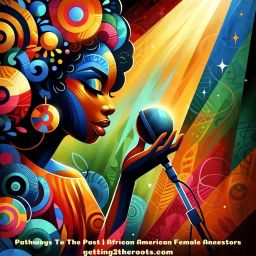
The Role of Oral Histories and Community Periodicals
Oral histories and community periodicals, like those used in reconstructing the lineage of figures like Ida B. Wells, provide valuable insights.
However, their subjective nature and the systemic racism prevalent in historical newspapers must be carefully considered.
Ethical Considerations in Genealogical Research
Ethical genealogical research, as seen in the studies of African American Female Ancestors, requires sensitivity and respect for the narratives it uncovers.
The process should honor the dignity and struggles of ancestors, striving for accurate and responsible storytelling.
Recognizing the influence of African American women in shaping today’s social, cultural, and economic landscapes is enlightening.
It presents a picture of persistence, resilience, and courage. This recognition inherently affirms their significant contributions to the history of this nation.
Each lineage traced is a tribute to their legacy and adds to the unfolding mosaic of America’s shared history. It is not just an individual or family venture, but a societal and national one.
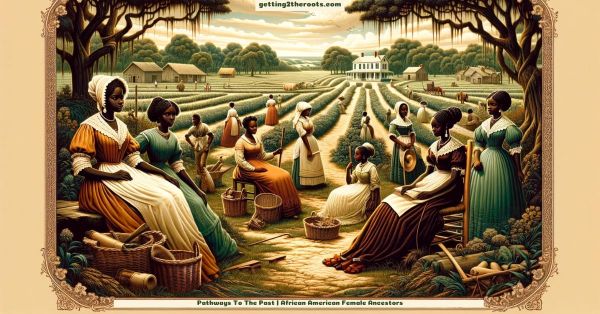
Conclusion: Honoring the Legacy of African American Female Ancestors
In conclusion, tracing the lineage of African American Female Ancestors is deeply significant. It enriches personal identity narratives and community histories.
Additionally, it broadens our understanding of the nation’s multifaceted history. Acknowledging the impact of African American women is vital to understanding our social, cultural, and economic landscapes.
Their story is one of persistence, resilience, and courage. This recognition affirms their crucial role in American history.
Each lineage traced serves as a tribute to their enduring legacy, enriching the mosaic of America’s shared history.
This pursuit transcends individual or family endeavors; it is a vital societal and national journey.
The story of tracing African American Female Ancestors is one of resilience and discovery, empowering us to transcend historical limitations and embrace the future’s potential.
Despite challenges like scarce historical records and surname changes, leveraging a blend of resources and methodologies has allowed many to piece together their ancestral puzzles.
Case studies in this field illuminate both the feats and limitations, shining a light of possibility for those on similar quests.
As we continue to uncover the lineage of African American Female Ancestors, we honor their indomitable spirit and perseverance.
This exploration underscores the vital role these women have played in shaping our collective past. It also highlights their influence on our future.

Frequently Asked Questions (FAQ) about African American Female Ancestors
Q: What are the unique challenges in tracing African American Female Ancestors? A: The journey to trace African American Female Ancestors involves overcoming challenges like scarce documentation, complex historical events, and entrenched societal structures.
Q: How has slavery impacted the lineage of African American Female Ancestors? A: The legacy of slavery has deeply disrupted the family dynamics and lineage of African American Female Ancestors, adding layers of complexity and significance to genealogical research.
Q: What resources are available for researching African American Female Ancestors? A: Resources for researching African American Female Ancestors include historical records, oral histories, DNA testing, and digital archives specializing in African American genealogy.
Q: Why is understanding the history of African American Female Ancestors important? A: Understanding the history of African American Female Ancestors is vital for recognizing their contributions and resilience and fostering a more inclusive and comprehensive historical narrative.
Q: How can individuals overcome the challenges of tracing the lineage of African American Female Ancestors? A: Overcoming the challenges of tracing the lineage of African American Female Ancestors involves utilizing specialized resources, embracing community knowledge, and seeking support from genealogical societies and experts.

